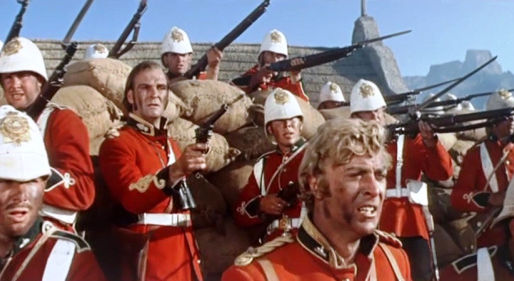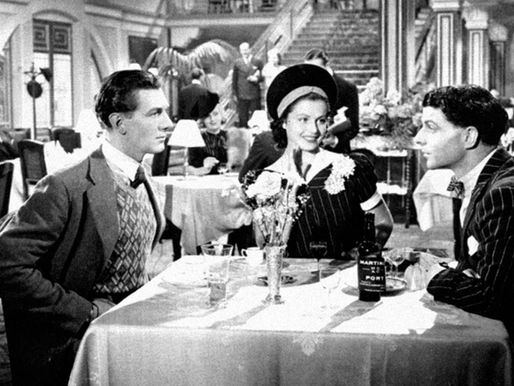top of page
Search
Golden Age Brits
Articles relating to British talent within the film Industry.
Including, Actors, Directors, Writers etc


Lionel Jeffries
Lionel Charles Jeffries was born on June 10, 1926, in Forest Hill, London, England. From a young age, Jeffries showed an interest in the performing arts, though his early path was far from the entertainment industry.

Soames Inscker
3 min read


The Railway Children (1970)
The Railway Children is a beloved British family film adapted from Edith Nesbit’s classic children’s novel. The story centres on the lives of three siblings — Roberta (Bobbie), Peter, and Phyllis — who, along with their mother, move from London to a quaint house near a railway after their father mysteriously disappears and is presumed imprisoned for a crime he did not commit.

Soames Inscker
3 min read


The Anniversary (1968)
The Anniversary (1968) is a darkly comic, offbeat British film that delivers a masterclass in screen villainy through a deliciously wicked performance by Bette Davis. Adapted from the play by Bill MacIlwraith, the film blends elements of domestic drama, grotesque comedy, and psychological torment.

Soames Inscker
5 min read


Don't Look Now (1973)
Nicolas Roeg’s Don’t Look Now (1973) is a film that defies easy categorization. Ostensibly a supernatural thriller or horror story, it is, at its core, a harrowing meditation on grief, trauma, and the instability of perception.

Soames Inscker
5 min read
John Boorman
John Boorman stands among the most original and unpredictable filmmakers of the late 20th century. An English director with a deeply poetic sensibility, Boorman has carved out a unique place in cinema, exploring themes of nature, conflict, mysticism, and myth with bold visual style and philosophical depth.

Soames Inscker
6 min read


Loguns Run (1976)
Logan’s Run (1976) is a landmark of 1970s science fiction cinema—an ambitious, visually inventive, and thematically rich dystopian adventure. Released a year before Star Wars, it arrived at the tail end of an era when sci-fi was used not to thrill with action, but to provoke thought. Set in a future society where youth is preserved and death comes by design at the age of 30, Logan’s Run explores hedonism, social control, and the search for authenticity in a sterile, controlle

Soames Inscker
5 min read


Zulu (1964)
Zulu (1964) stands as one of the most iconic British war films ever made. Based on the real-life 1879 Battle of Rorke’s Drift during the Anglo-Zulu War, the film dramatizes the desperate defense of a remote mission station by a small contingent of British soldiers against thousands of Zulu warriors. Directed by American expatriate Cy Endfield and produced by its star, Stanley Baker, Zulu is an enthralling combination of widescreen spectacle, military drama, and character stud

Soames Inscker
5 min read


Von Ryan's Express (1965)
Von Ryan’s Express (1965) is a taut, thrilling, and occasionally unconventional World War II adventure film that combines the high-stakes tension of a prisoner-of-war drama with the pulse-pounding spectacle of a heist-like escape. Directed by Mark Robson and starring Frank Sinatra at the height of his cinematic charisma, the film rides a narrow but effective track between traditional war movie conventions and a more modern, morally ambiguous hero narrative.

Soames Inscker
5 min read


Two for the Road (1967)
Directed by Stanley Donen and starring Audrey Hepburn and Albert Finney, Two for the Road (1967) is a sophisticated, emotionally resonant, and structurally daring exploration of love, marriage, and memory.

Soames Inscker
4 min read


Funny Face (1957)
Funny Face (1957) is a visually sumptuous and musically charming romantic comedy-musical directed by Stanley Donen, starring Audrey Hepburn, Fred Astaire, and Kay Thompson. Loosely based on the 1927 stage musical of the same name.

Soames Inscker
4 min read


Advise and Consent (1962)
Advise & Consent (1962) is a tense, cerebral, and surprisingly daring political drama directed by Otto Preminger, adapted from Allen Drury’s Pulitzer Prize-winning novel of the same name. It offers a razor-sharp look at the inner workings of the United States Senate and the murky interplay of politics, personal secrets, ideology, and power.

Soames Inscker
4 min read


The Moon is Blue (1953)
When The Moon Is Blue was released in 1953, it caused a seismic stir—not because of any wild visual spectacle or ground-breaking technical achievement, but due to its script. This modest romantic comedy made headlines for its frank (by 1950s standards) treatment of courtship, chastity, and feminine assertiveness.

Soames Inscker
3 min read


Michael Redgrave
Michael Redgrave, the son of renowned actor Roy Redgrave, was an actor whose career spanned over five decades, and his remarkable range and subtle mastery of both stage and screen performances have earned him a lasting legacy in British theatre and cinema.

Soames Inscker
6 min read


Charles Laughton
Charles Laughton, born in England in 1899, is widely regarded as one of the most remarkable and versatile actors in the history of cinema. Known for his commanding screen presence, intense characterizations, and ability to portray a wide range of emotions, Laughton’s career spanned the early days of sound cinema to the early 1960s.

Soames Inscker
6 min read


Ruggles of Red Gap (1935)
Ruggles of Red Gap (1935) is a charming and whimsical comedy that represents a delightful intersection of British and American sensibilities in film during the mid-1930s.

Soames Inscker
6 min read


Outcast of the Islands (1951)
Outcast of the Islands (1951) is a richly layered drama set in the remote, tropical environment of the Malay Archipelago, adapted from Joseph Conrad's novel of the same name.

Soames Inscker
6 min read


The Man Between (1953)
The Man Between (1953) is a striking example of British post-war cinema, mixing elements of noir, suspense, and Cold War tension. Directed by Carol Reed, known for his mastery of atmospheric tension in films like The Third Man (1949), this film explores themes of espionage, political intrigue, and moral ambiguity in the divided city of Berlin during the early years of the Cold War.

Soames Inscker
6 min read


The Fallen Idol (1948)
The Fallen Idol (1948) is a quiet masterpiece of psychological tension, moral ambiguity, and childhood perception. Directed by Carol Reed in one of his finest collaborations with writer Graham Greene (preceding their celebrated The Third Man), the film is a study in how innocence and misunderstanding can transform the banal into the tragic.

Soames Inscker
5 min read


The Stars Look Down (1940)
The Stars Look Down (1940) is a compelling, socially conscious British drama that grapples with class conflict, industrial exploitation, and moral idealism.

Soames Inscker
5 min read


Robert Donat
Robert Donat remains one of the most elegant and intellectually resonant actors in British film history. Best remembered today for his Academy Award-winning performance in Goodbye, Mr. Chips, Donat’s career is marked by a series of deeply humane, literate, and subtly nuanced performances.

Soames Inscker
4 min read
bottom of page


